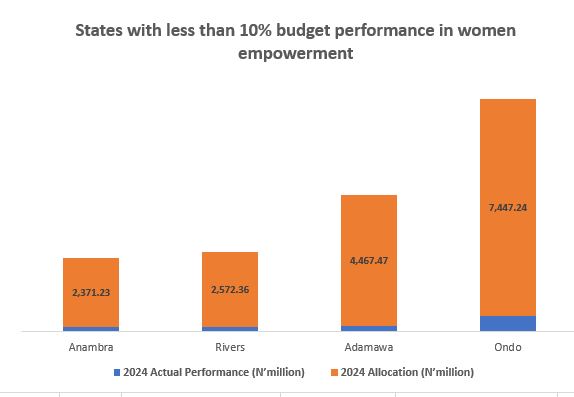The Niger Delta Avengers, a militant group that says it is fighting to promote social justice in the oil rich delta region of Nigeria has threatened to attack deep sea operations of multinational companies operating in the volatile area putting at risk nearly 1million barrels per day of crude oil production in Africa’s biggest crude oil producer.
Data compiled from the Nigerian National Petroleum Corporation (NNPC)’s October operations and financial report indicates that crude output from Production Sharing Contracts (PSCs) which is prevalent in offshore production is responsible for 46.8 percent of Nigeria’s 1.93million bpd output translating to over 903,000 bpd produced for September 2017.
“This round of attacks will be the most deadly and will be targeting the deep sea operations of the multinationals which include Bonga Platform, Agbami, EA Field, Britania-U Field, Akpo Field; amongst others littered across the deep waters of the Niger Delta region,” the group said in a statement posted on its website.
It further said, “As for the Egina FPSO, we are advising the operators to let it stay where ever it is right now as we are tracking it’s movement. We mean it when we say they (the oil installations) shall dance to the sound of the fury of the Niger Delta Avengers. Good a thing the ocean is wide enough to accommodate as many wreck as possible.”
Analysts say more of these threats will come as Nigeria gears up for general elections next year.
“As the Buhari administration shifts to re-election mode, it is likely more receptive to public opinion and agitations. Groups like the NDA and others likely sense an opportunity. They would probably come to some arrangement with the government. We should expect more of these negative events till after the 2019 elections,” said Rafiq Raji, chief economist at Macroafricaintel.
Similarly, Ayodele Oni, an energy lawyer and partner at Bloomfield law firm corroborates this view saying that more groups would ramp up agitations.
Renewed militancy would have a negative effect on Nigeria’s economy that just exited a recession with two quarters of positive GDP growth 0.5 percent and 1.4 percent in Q2 and Q3, 2017 respectively.
The December inflation data, released by the National Bureau of Statistics (NBS), showed a decline to 15.37 percent which “came as a surprise to some analysts, not only in its direction but its magnitude,” says analysts at Financial Derivatives Company.
A more stable currency was also attained due to ramp up in crude oil production and rising oil prices. Last year’s dip in oil prices and a blistering militant campaign cut nearly a third of Nigeria’s production pushing the economy into a bruising recession.
Brent for March settlement added 15 cents to $69.30 on the London-based ICE Futures Europe exchange.
The NDA say they want Nigeria restructured. “The killings and division presently playing out in Nigeria along divergent grounds makes this the perfect time to restructure this country. While promising a brutal outpour of our wrath, which shall shake the coffers of the failed Nigerian nation, our demand unambiguously is for the government to restructure this country.”
Recall the group called off a ceasefire agreement with the Nigerian government brokered by elders in the region on November 3 over the purported insincerity of government.
Shortly thereafter, Usani Uguru Usani, minister of Niger Delta Affairs, said Nigeria was ready to meet with the militants. It doesn’t seem much was accomplished.
President Muhamadu Buhari has however, rejected the idea of restructuring, though his reason speak more to misapprehension, rather than recalcitrance. In his New Year message, the president said, “When all the aggregates of nationwide opinions are considered, my firm view is that our problems are more to do with process than structure,” the president said.
Buhari further said Nigeria should continue to operate its current presidential system, but said he will listen to ideas on how to make it less permeable to extravagance, waste and corruption largely.
The NDA group is also demanding for resource control. “We want to control our resources and directly use them to better our lot instead of been enslaved and made to beg before crumbs are released in a dress rehearsal-like manner to intervention agencies that are ineffective at addressing our challenges.
“While 1 Billion Dollars from the excess crude account is been released to fight a Boko Haram in the North; successive government acts blind to the very bold array of challenges our region from which this wealth is generated is facing; as they (the Nigerian Government) derives pleasure in sending their unprofessional and weak military to invade our communities and subject our already sick and suffering people to more hardship and poverty.”
Besides threatening production in deep offshore fields, the NDA says it will attack the Engina Floating Production Storage Off-shore (FPSO) which is due to arrive Nigeria later this month as the main component is currently sailing from South Korea to be coupled with its top side being fabricated at LADOL. It is billed to add about 200,000 barrels per day to Nigeria’s production.
Meanwhile, the House of Representatives has passed the bill for an Act to provide for the Governance and Institutional framework for the Petroleum Industry and for other related matters, through third reading.
The bill which seeks to unbundle Nigerian National Petroleum Corporation (NNPC) provides for establishment of Federal Ministry of Petroleum Incorporated; Nigerian Petroleum Regulatory Commission; Nigerian Petroleum Assets Management Company and National Petroleum Company and Petroleum Equalisation Fund.
Victor Nwokolo, deputy chairman, Ad-hoc Committee on the Petroleum Industry Bills who led the debate on the report, explained that the regulatory bill will balkanize Nigerian National Petroleum Corporation (NNPC) and create a National Petroleum Commission which will take over the functions of Department of Petroleum Resources (DPR).
Nwokolo explained that some subsidiaries of the NNPC had also been merged into an entity to be known as the Nigeria Petroleum Regulatory Commission.
According to him, the House Ad-hoc Committee adopted the Senate version of the PIGB.
As stipulated in Part 3 of the bill, Nigerian Petroleum Regulatory Commission when established shall be vested with all assets, funds, resources and other movable and immovable properties owned by Petroleum Inspectorate, Department of Petroleum Resources and Petroleum Products Pricing Regulatory Agency.
The bill further provides that “upon the recommendations of the new commission, minister of petroleum resources can grant, amend, renew, extend or revoke any licence or lease required for petroleum or production, pursuant to the provisions of the Act or any other enactment.”
The power for issuing and revoking licenses was also domiciled in the commission, as well as allocate petroleum production quotas in a non-discriminatory manner.
The commission was also empowered to advice the Minister on fiscal and other issues pertaining to petroleum industry; establish framework for the validation and certification of national hydrocarbon reserves; undertake evaluation of national reserves and reservoir management studies as well as conduct regular audits of the activities of operators engaged in petroleum operations and oil service companies in order to ensure compliance with Nigerian laws and requirements for petroleum operations.
It also seeks to establish the methodology for determining appropriate tariffs for gas processing, gas transportation, transmission and transportation of crude oil and bulk storage of oil and gas.
When the bill was mentioned for consideration at the Committee of the Whole, only 30 members of the House of Representatives considered and passed the Petroleum Industry Governance Bill (PIGB) within 23 minutes (2:19pm to 2:42pm).
Copies of the 191 page PIGB report which was laid on resumption from Christmas/New Year recess on Tuesday, was slated for consideration barely 24 hours.
Contrary to legislative procedure, clean copies of the 134 clauses was not circulated to enable them make input during the debate.
ISAAC ANYAOGU & KEHINDE AKINTOLA, Abuja








